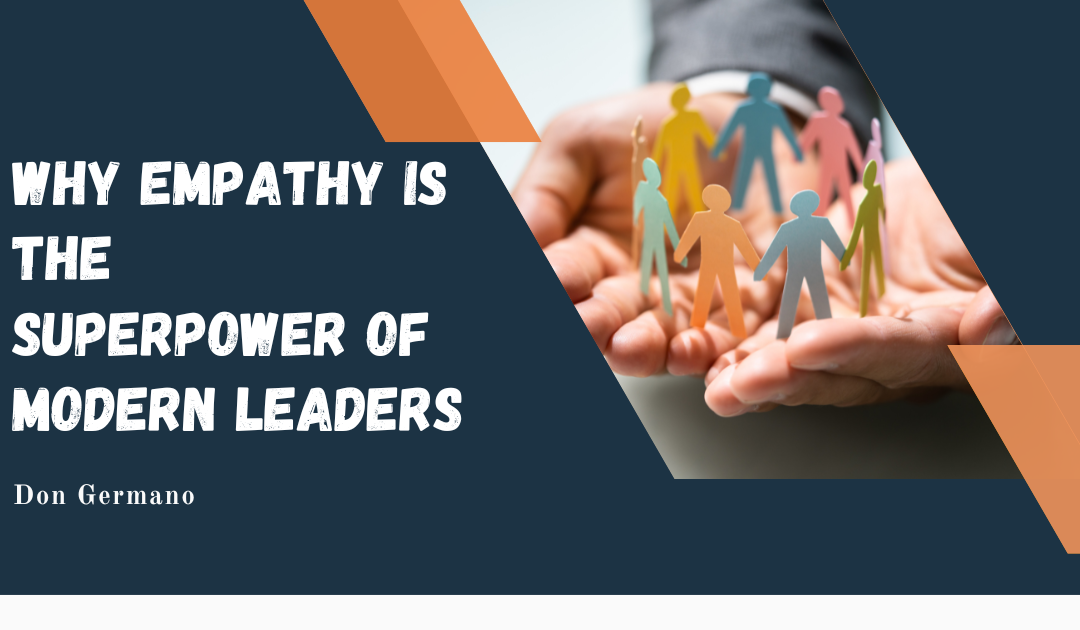In an age where automation, digital transformation, and AI are redefining the workplace, one human trait has emerged as a quiet but powerful differentiator: empathy. Far from being a soft skill or a buzzword, empathy is becoming one of the most critical competencies for modern leadership. It fosters connection, drives collaboration, and fuels cultures of trust and belonging.
Empathy, at its core, is the ability to understand and share the feelings of another person. For leaders, this means more than just being kind or approachable—it means truly listening, seeing things from others’ perspectives, and responding in a way that makes people feel valued. Empathy transforms leadership from transactional to relational.
One of the key reasons empathy is essential today is the evolving nature of the workforce. Employees no longer seek only stability and compensation—they want meaning, flexibility, and human connection. Leaders who demonstrate empathy are better equipped to meet these needs, especially in times of uncertainty or change. They provide emotional support, communicate with transparency, and create environments where people feel safe to express themselves.
Empathetic leadership also drives stronger team performance. When employees feel heard and understood, they’re more likely to be engaged, loyal, and motivated. They collaborate more openly, take initiative, and feel a deeper sense of ownership in their work. Empathy doesn’t just make teams feel better—it makes them function better.
In moments of conflict or crisis, empathy is especially vital. Leaders who rush to judgment or impose decisions without understanding their impact can erode trust and morale. Empathetic leaders take time to ask questions, listen to concerns, and factor in the emotional weight of their choices. This doesn’t mean avoiding hard decisions—it means making them with compassion and care.
The remote and hybrid work era has further elevated the importance of empathy. With less face-to-face interaction, leaders must be even more intentional in how they connect with their teams. Checking in regularly, reading non-verbal cues over video calls, and acknowledging individual challenges all contribute to a more empathetic leadership style that supports people regardless of where they work.
Empathy is also a cornerstone of inclusive leadership. Creating diverse and equitable workplaces requires leaders to understand experiences different from their own. This involves active listening, humility, and a willingness to learn and grow. Empathetic leaders advocate for fairness, ensure all voices are heard, and foster a culture where everyone feels they belong.
Interestingly, empathy also plays a strategic role. Leaders who are attuned to the needs and emotions of their customers, employees, and stakeholders can anticipate shifts, navigate challenges more effectively, and build stronger relationships. Empathy becomes a lens for better decision-making, deeper insights, and long-term success.
Developing empathy as a leader doesn’t require a complete personality overhaul. It starts with intentional actions—practicing active listening, asking open-ended questions, and avoiding assumptions. It means giving people your full attention, resisting the urge to immediately offer solutions, and showing genuine concern.
Empathy can also be modeled at every level of an organization. When senior leaders lead with empathy, it sets the tone for the entire culture. Teams are more likely to mirror those behaviors, creating ripple effects that enhance collaboration and community throughout the company.
Importantly, empathy is not a weakness. It doesn’t mean avoiding accountability or ignoring performance issues. Rather, it provides a framework for addressing those challenges with dignity and understanding. Empathetic leaders can have tough conversations while still maintaining respect and support for their team members.
As the world becomes more complex and connected, empathy is emerging as the superpower that helps leaders navigate the human side of business. It bridges differences, builds resilience, and creates cultures where people can do their best work. In the end, empathy isn’t just about being a better leader—it’s about being a better human. And in today’s world, that might just be the most powerful leadership trait of all.

